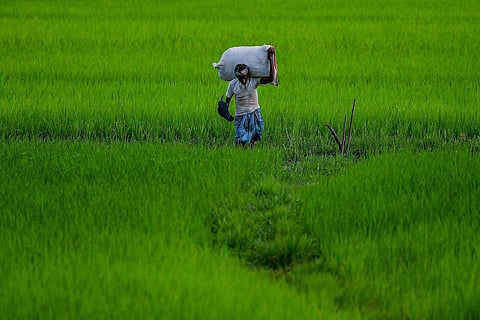

Farmers across Karnataka will gather at Bengaluru’s Freedom Park on September 21 to protest the amendment to the Karnataka Land Reforms (Amendment) Act 2020, which came into effect in Karnataka on June 13. The Karnataka Rajya Raitha Sangha, an association of farmers across the state had sent multiple representations to Chief Minister BS Yediyurappa to roll back the decision. However, farmer groups said that the state government was in turn “trying to convince farmers” that the decision is beneficial to them.
“It has created a life or death situation for farmers and we will be completely destroyed if this is implemented. The government is saying that the price of our land will increase. But we don’t want to be in a situation where small farmers, especially Dalit farmers are displaced,” said Kodihalli Chandrashekar, a member of the Karnataka Rajya Raitha Sangha.
He alleged that the amendment is a backdoor entry for corporations to buy agricultural land or lease agricultural land. “80% of cultivators in Karnataka are small farmers and most of them belong to Dalit, Adivasi or OBC communities. Most agricultural labourers are also from these communities and they have the most to lose. They are not big farmers. They will be lured or threatened to lease their land or sell it. Also, agricultural labourers will lose their jobs and end up in slums in Bengaluru,” he alleged.
Under the new amendment, non-agriculturalists can also buy agricultural land. Earlier, a paani-holder or those who have been identified as agriculturalists could only buy agricultural land. This was done by waiving Sections 79(a) and 79(b), which mandated the existence of a paani.
In addition, the state government has waived Section 79(c), which means those who illegally purchased agricultural land, will not be prosecuted.
The new amendment has also raised the ceiling for purchasing agricultural land. The lands are classified into irrigated, partially irrigated, dry and barren lands. The ceiling is now 52 acres, 80 acres, 120 acres and 216 acres respectively.
“Under the law, irrigated land refers only to the land which has irrigation connections from a dam. Even those lands where borewells are used are not considered as irrigation land. Most farmers use borewells to irrigate their lands for cultivation. This is also a big problem,” Dr Prakash said.
Farmer groups said that the government’s disinterest in rolling back the project has angered many, as they are anxious about whether they would be financially secure. “Yediyurappa wore a green shawl (one which represents support to farmers) and took oath as Chief Minister. Now he is saying that the move is for our benefit. It feels like he has poisoned farmers with his words. We will fight this until it is rolled back,” Kodihalli Chandrashekar said.